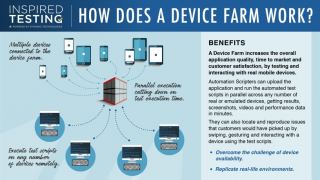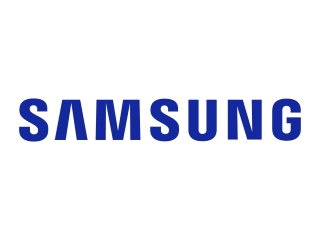Cape Town Startup MindZu in Finals of Global Edtech Awards
Cape Town startup MindZu (www.mindzu.com) has made it into the finals of the Global Edtech Startup Awards. Over 3,000 companies from more than 80 countries entered the GESAwards competition, which provides an unmatched showcase for the most innovative companies from across the world.
Godfrey Parkin, co-founder of MindZu, said, “Being selected for the finals is a huge endorsement for a company that has an ambitious mission. Through quality gamified maths education we improve the lives of millions in South Africa, and worldwide – irrespective of how dire or non-existent their school circumstances are.”
MindZu provides a full year of the highest quality maths education, via the learner’s own phone, for the price of a meal.
“The education system has failed the masses in South Africa and throughout the developing world,” says Parkin. “Most edtech operates within this failed system, so it too fails the masses.” MindZu is disrupting education by going direct to learners.
The company’s focus is on maths, particularly the final years of high school. To MindZu, learning maths is more than just being able to regurgitate Pythagoras or pass exams. “The early teenage brain is evolving faster than at any time other than the first years of life,” says Parkin. “The teen brain is ‘wiring’ itself to process complexity, and the quality of that wiring is determined by what stimulates or challenges it. Learning maths creates teenage minds which excel at creativity and complex problem-solving. It multiplies an individual's prosperity options. And as a consequence it collectively lifts the economy – not over decades but almost immediately.”
Learning maths - the most important developer of 21st century mental skills capacity in teens - should never be dumbed down in educational curricula, and the already disadvantaged should never be deprived of the upliftment benefits it brings. Yet our school system and our teachers struggle to teach the subject.
Across sub-Saharan Africa, the majority of youngsters aged 15-17 are not even in school, and this will get worse as migration levels grow. How do you get maths education to mobile, un-schooled or poorly schooled kids? The only way is to make it truly inexpensive, and deliver it via their mobile phone in a format which is compelling, exciting, and gamified. This is what MindZu does.
“We are solving not just a South African maths problem. We are solving a developing world prosperity problem. And we can do it profitably, which means we will be able to grow without depending on grants or donations,” says Parkin.
The GESAwards are a joint project of leading edtech organizations from across the world. In South Africa the awards are sponsored by the UK South Africa Tech Hub, a UK government initiative.
Mobile testing can make or break small screen experience
Testing should not be viewed as a ‘quick fix’, but an integral part of the DevOps process, says Inspired Testing.
The proof that considerable advances have been made in mobile testing is evident when one compares the user experience a decade ago to present time. From frustratingly slow and difficult to navigate, mobile interfaces are now coming into their own, providing millions of seamless and happy encounters.
Does this mean mobile testing has finally found its groove?
Well, yes and no. Yes, because the small screen platform is finally being understood as a discrete medium that requires specific testing skills and expertise. Mobile testing is now an area of specialisation. And no, because the diversity of content, continuous updates and the plethora of devices on the market at any given time – with their associated operating and application software – create a constant challenge to mobile testers, and their clients, to provide a fast, error-free and fluid user experience.
With what do we test it, dear Liza?
“One of the biggest tribulations for companies wishing to test their software on mobile devices is access. The number of makes and models available can make it a cumbersome, expensive and ongoing process,” says Jacques Fouché, CEO of software testing firm Inspired Testing.
Cloud-based public device farms provide a range of mobile devices and offer a useful rental service, but they have some drawbacks. Firstly, it can get very expensive, especially for larger corporates that have a wide range of services they need to cover. Larger organisations often require 24/7 access to the devices for a prolonged period of time. “Public device farms are more suitable for smaller companies that have a couple of apps they want to test, but this also depends on their risk profile,” explains Fouché.
Another option is cloud-based private device farms, where you strategically procure your own devices and either house them in your own data centre within the business, or with an outsourced provider. Either way, you have 100% access to the devices at any time, without having to pay a rental fee. ‘Strategically procure’ means you buy certain models within a brand, as testing on one device will give you similar screen real estate on four or five other devices. “This option is good for high-volume device users requiring stringent levels of security, such as companies in the financial technology space,” says Fouché. Companies that strive to achieve a high frequency of continuous integration and deployment would also do well to consider a private device farm, as this will give them unrestricted access to the devices.
Houston, we have lift-off… or not
Once the challenge of how to access devices for testing purposes has been solved, the process of testing begins. This is where companies can really come unstuck, says Lloyd Dignan, Director: New Business, Inspired Testing. “Whether it’s a new release or an update, a complete retest is the only solution. There is a perception that once you have released your app or launched your Web site, any subsequent updates will not be as critical. Many big players have discovered the hard way that this is not the case. No company is immune to crashes and errors. To avoid this, testing should be viewed not as a ‘quick fix’, but an integral part of the DevOps process,” he explains.
Understanding which devices your market uses is also critical to the testing process. Tapping into the information streams available, such as market research, Google Analytics and your marketing engine will provide insights into the make and model of devices accessing your site or app, from which you can extrapolate technical data. Also bear in mind that device usage differs significantly from country to country. For example, in the UK, the majority of 18-35-year-olds have the latest iPhone. In Romania, the Samsung Galaxy J5 is the most popular phone, while Chinese brands Tecno and Infinix are big brands in Nigeria. “Keeping current with devices and operating system updates is one of the main challenges facing companies,” says Dignan.
One thing mobile users across markets, countries and continents do have in common is intolerance to poor app and Web site performance. “There is absolutely no loyalty,” says Dignan. “If an app crashes or takes too long to load (between four and eight seconds on average), the user will move on – and even delete the app before they go.” Because there is such fierce competition, there is significant pressure on companies to go live as soon as possible. “The opportunity for mobile is massive, but organisations have to make sure their systems and applications are fully tested – and the errors fixed – before they release. Errors become compounded with each new update and it gets harder to fix each time,” explains Dignan.
A changing landscape
There are clear statistics that show a massive transition from user access via desktop and laptop to mobile devices (including tablet), while the consumption of data has moved significantly from laptop to mobile. Mobile devices are not only used to access apps; they are becoming the platform of choice to access Web sites. This makes Web site testing as important as app testing, as an estimated 63% of users worldwide now use their mobile devices to access Web sites. There is much more likelihood of someone completing their cart on a phone than on a laptop or desktop. In addition, says Dignan, the emergence of responsive Web sites – Web sites that shrink down and respond to the size of the screen – made mobile browsing much easier, while many companies are now releasing apps to augment their Web sites, to provide an interactive user service. Progressive Web applications that look and load like ‘normal’ Web pages, but offer the functionality of an app, are also becoming standard practice.
These shifts are creating massive opportunities in the mobile space, and consequently, a significant explosion in mobile testing, says Fouché, particularly in industries such as fintech, logistics and retail. Automated mobile testing has become an area of specialisation in itself, and mobile testing is no longer a sub-set of testing, but a category in its own right.
-- END --
About Inspired Testing
Inspired Testing’s disruptive onshore offshore model offers a revitalised alternative to outdated offshore models. With a scalable pool of 250+ expert SQA professionals in the UK and South Africa, the company’s strength lies in knowing how to structure, execute and automate testing. Importantly, our ISO 27001 certification and its alignment to the UK/EU GDPR (General Data Protection Regulation) ensures full protection of critical personal data. Inspired Testing uses a unique combination of experience, technique and blended onshore offshore delivery capabilities to provide expert software testing across most platforms, devices and environments. www.inspiredtesting.com
Inspired Testing is a wholly owned subsidiary of Dynamic Technologies, a software and technology group with 1 000+ staff and thirteen group companies across the UK and South Africa providing a diverse range of technology solutions, digital services and related core competencies. Our group companies comprise DVT (which includes the DVT Academy), Inspired Testing, DotModus, Cloudsmiths, IndigoCube, Blue Pencil Consulting, Dynamic DNA, Blue Pencil Creative, Emerald Consulting, Dynamic Talent, EventSmiths and Swarm. www.dynamic-tech.com
A new innovative app makes eating out, Guilt-Free, this Festive Season
With the help of a simple FREE app, South Africans can now choose healthier meals when eating out, AND be rewarded for it. Leading nutritional solutions company, CHOW offers a restaurant programme available in over 300 restaurant outlets nationwide, that makes choosing healthier meals easy for consumers, this festive season.
The serious side
South Africa is a nation in transition with people increasingly looking for convenience meals, fast foods and out-of-home dining, one of the consequences of rapid urbanisation. In the most recent national population health survey, almost half of adult South Africans reported that they eat outside of the home with almost a third doing so on a weekly basis.1 This trend is not confined to adults, with 1 in 3 South African adolescents eating out 2 – 3 times per week.2 Increasing intakes of fat, sugar and salt, accompanied by a decline in fruit, vegetables and fibre-rich foods have played a part in the rising obesity, diabetes and hypertension rates in South Africa. A multi-strategy approach is required to curb the rising prevalence of these non-communicable diseases in South Africa. The National Department of Health’s (NDoH) Strategy for the prevention and control of obesity in South Africa acknowledges that no stand-alone approach is likely to succeed and recommends action through policy and environmental change.3 The obesity strategy recognises CHOW as a cog in the wheel to create an enabling environment where healthy food choices are accessible and available when dining out.
Introducing the CHOW solution
CHOW owner and registered dietitian, Mr Stefan van der Merwe, recognised the need to provide the public with an exciting and innovative solution to eating out, without compromising on health. “We have to be realistic – in today’s fast-paced world, people want convenience and eating out, is here to stay. Through the CHOW programme we aim to take the guesswork out of choosing a healthy meal and aim to make eating out a possibility that can fit within everyday healthy habits. We further aim to play our part in driving restaurants and fast food establishments to provide healthier meal options”, explains Mr van der Merwe. The CHOW programme accredits healthy meals in restaurants, based on a range of guidelines and criteria developed and administered by a team of registered dietitians. Once a meal has been accredited, it is allowed to showcase the CHOW mark, an official endorsement approved by the NDoH. Meals showcasing the CHOW mark has to include beneficial food groups such as vegetables, wholegrain carbohydrates, healthy fats, lean or plant protein or dairy. In addition, limits are set for certain nutrients including total kilojoules, saturated fat and sugar. The CHOW programme is further integrated with a mobile application, free for download, which essentially acts as a national healthy eating directory. Making use of GPS tracking, when opening the app, nearby CHOW accredited restaurants, meals and full nutritional information is just a tap or a click away.
Get rewarded for making healthy choices
An important step in changing consumer behaviour towards the healthy, is being rewarded for it. At CHOW, incentivising healthy choices is a key strategy to keep individuals engaged in the process in order to entrench healthy eating as a daily habit. When consumers order a CHOW accredited meal they will earn CHOW bucks which can be used in exchange for vouchers from participating healthy partners as well as earn loyalty points from leading loyalty programmes.
Driving change and transparency in the food industry
CHOW is on a mission to change the way consumers choose meals when eating out, hoping to increase consumer demand for healthier options and inevitably driving change within the food industry. Spur Marketing Manager, Mr Etienne Ralphs, is proud to be a part of this changing dynamic: “We were one of the first restaurants to offer and showcase healthier menu options to our customers. We are a family restaurant and one of the biggest national franchises in South Africa, so we feel a strong commitment to play our part in offering healthy choices – CHOW has made this process easy, accessible and appealing”. CHOW strives towards a collaborative approach with participating retailers, with CHOW dietitians appointed to each and every restaurant to support with meal analyses and accreditation, menu development and auditing as well as general nutrition and health support. Now more than ever, it is vitally important to find innovative ways to meet consumers where they are, providing solutions rather than restrictions, utilising technology to drive healthy behaviours and to take action to support the health of South Africans.
For more information and to download the CHOW mobile app visit www.chowsolutions.com
Shisana O, Labadarios D, Rehle T, Simbayi L, Zuma K, Dhansay A, Reddy P, Parker W, Hoosain E, Naidoo P, Hongoro C, Mchiza Z, Steyn NP, Dwane N, Makoae M, Maluleke T, Ramlagan S, Zungu N, Evans MG, Jacobs L, Faber M, & the SANHANES-1 Team (2014) South African National Health and Nutrition Examination Survey (SANHANES-1): 2014 Edition. Cape Town: HSRC Press Feeley A, Musenge E, Pettifor JM, Norris SA. Investigation into longitudinal dietary behaviours and household socio-economic indicators and their association with BMI Z-score and fat mass in South African adolescents: The Birth to Twenty (Bt20) cohort. Public Health Nutrition: 2012; 16(4): 693–703. National Department of Health. Strategy for the prevention and control of obesity in South Africa. 2015. https://www.health-e.org.za/wp-content/uploads/2015/12/National-Strategy-for-prevention-and-Control-of-Obesity-4-August-latest.pdf
For more information or to arrange interviews contact: Chow Nutritional Solutions Stefan van der Merwe This email address is being protected from spambots. You need JavaScript enabled to view it. 031 564 1001 078 271 3747
About CHOW (Choose Healthy Options Wisely)
CHOW Nutritional Solutions Pty (Ltd) is a specialist nutrition solutions and nutrition technology company. CHOW is run & managed by experts in the field of nutrition and dietetics. The focus at CHOW is to provide South Africans with practical approaches to make healthy choices easier and to modify dietary behaviour in the process. CHOW offers accreditation and nutritional solutions services to restaurants and restaurant groups, corporate canteens, retailers, school and work canteens and government organisations.
Mobile device Q&A with Samsung
How long does a warranty last and what should it cover? All Samsung mobile phones come with a two-year warranty which covers functional defects. The phones can be sent in for repairs free of charge to any Samsung Service Centre* within the warranty period. The warranty does not cover any defects or flaws resulting from physical damage (for example, dropping the phone) except for products covered with ADH (Accidental Damage from Handling). ADH is a unique service for premium Samsung customers which protects the supported Samsung Galaxy devices from accidental damage during normal use – a world first from a device manufacturer point of view. In order to qualify for ADH, a customer needs to purchase a supported Samsung Galaxy device and keep the proof of purchase, as per the standard factory warranty requirements**. Consumers should note that making use of fake or non-authorised products, such as chargers and other accessories, could potentially damage the handset. This damage will not be covered by the warranty. How can I avoid draining my phone’s battery unnecessarily? A battery is designed to last more than a typical working day. Samsung recommends switching off any unused applications (apps) especially those that drain power, for example Bluetooth or GPS, as well as remove unauthorised apps. Samsung has developed the Smart Manager App which is standard with all its latest mobile devices. It shows which applications use the most battery power so consumers can reduce their usage when the battery is running low.
What’s the best way to charge my phone? Always use an original Samsung charger. Overnight charging is ideal and newer devices automatically cut off at 100%. However, consumers still need to ensure that they have a surge protector in place in order to avoid damage that could result from a power failure. A full charging cycle is recommended. Consumers should avoid plugging and unplugging the device constantly as it may affect the charging port. The battery can be further protected by avoiding car chargers and laptop or PC chargers as they have insufficient electrical current to fully charge the handset.
What are the options if my mobile device needs to be repaired? Samsung’s Quick Repair Service (QRS) provides rapid turnaround times and the service is available at selected Samsung Brand Stores and nationwide service partners. QRS includes maintenance, screen repairs and simple software updates and data transfers. Another option is to book in a device via Samsung’s Online Cyber Service, a fast and simple solution. The service has been designed to enable customers to pre-book the repair of their mobile devices at a service centre and time that is convenient to them. Furthermore, this solution also allows customers to change or cancel a reservation at any time.
Should I repair my phone or buy a new one? Samsung sources the highest quality components and recommends repairing the product using accredited and qualified technicians. Only accredited service centres have access to Samsung parts to further add a layer of protection for the consumer. Regular software updates assist the device to operate as if it were new.
About Samsung Electronics Co., Ltd. Samsung Electronics Co., Ltd. inspires the world and shapes the future with transformative ideas and technologies. The company is redefining the worlds of TVs, smartphones, wearable devices, tablets, cameras, digital appliances, printers, medical equipment, network systems and semiconductor and LED solutions. For the latest news, please visit the Samsung Newsroom at news.samsung.com.
Direct Carrier Billing (DCB) can Galvanize the Mobile Vertical Markets, finds TeleResearch Labs
Mobile network operators aren’t paying close attention to leverage DCB in mobile vertical markets. TeleResearch Labs examines many such hot opportunities in adjunct telecom markets for operators in its latest report: Vertical & Horizontal Worlds of Mobile.
As mobile payments is one of the broadest areas of horizontal potential, US-based telecom research company TeleResearch Labs strongly encourage operators to try incorporating direct carrier billing (DCB) – for physical goods. Though there are a few cases where it has started but operators have not yet focused on it. San Francisco-based company Boku, which specialises in direct carrier billing solutions, has entered into partnerships with the UK's three main telcos for supporting DCB payments for items such as magazines and bus tickets, and is looking for expanding into the food industry.
While operators do not foresee DCB in developed markets where the focus currently is on NFC/ mobile wallets, this payment method could be explored in emerging markets where millions of people don't possess credit/ debit cards and don't even have bank accounts. Telcos charge upwards of 25% of the cost of items purchased via DCB, and they could do worse than lowering this amount so as to expand scale of such payments. Moreover, this platform can also assist operators in competing with incumbent e-commerce/ m-commerce companies such as Amazon.
If only, mobile operators work with app developers facilitating DCB and the merchants to bring down the rates they charge, as has been done in South Korea, humongous revenues are in store as they would compete head-on with credit card companies. It would be additionally one more way to lure prepaid customers to sign up for postpaid contracts, especially in markets such as India, Pakistan, and countries in Africa.
For more strategical guidelines in mobile vertical markets, visit:
http://www.teleresearchlabs.com/view_document/73-vertical-a-horizontal-worlds-of-mobile
http://www.teleresearchlabs.com/
Email: This email address is being protected from spambots. You need JavaScript enabled to view it.
Phone: +1 202-506-8078
Performanta, confirmed platinum sponsor at IT Leaders Africa Summit
Event organiser Kinetic has confirmed that industry-giant Performanta has signed on as platinum sponsors for this year’s anticipated 6th edition of their successful flagship event; the IT Leaders Africa Summit.
The event, taking place from 18 - 19 March 2015 at The Maslow Hotel in Johannesburg, is set to go beyond your usual routine business conference, evolving to deliver on a more exciting, topical, trendy and current platform, utilising both the latest technologies coupled with the latest in conference trends internationally.
Together with Performanta, the event aims to deliver an expert-lead agenda that features an educational conference program backed by the latest in technology workshops and demonstrations.
Performanta’s workshop; Safeguard your organisation now, your wallet will thank you later; focuses on measuring your organisation against the industry on 10 information security and privacy measures, derived from real-world assessments.
Performanta Consulting was established by Anthony Olivier 4 years ago, aligning information security consulting services to the Performanta Technology & Services stable. Performanta Consulting has provided services to primary South African banks, insurance companies, brokers, mining companies, service and retail organisations. Their key differentiator: senior, qualified, experienced consultants, integrated frameworks and fair pricing. Furthermore, the team has assisted in addressing security problems in seventeen African countries and has a thorough understanding of the continental landscape.
As thought-leaders in the industry, they are amongst the most active South African participants in industry conferences, blogs and podcasts.An expert-led advisory panel will lead the summit with industry giants Robert Sussman, co-founder and joint-CEO of Integr8; Hugo Timmerman, Head of IT Southern Africa at British American Tobacco; and Tunde Coker, MD of Rack Centre (A Jagal Group Company).
The event also features over 35 speakers, keynotes, panel discussions and numerous educational workshop sessions hosted by key industry providers, all sessions led by some of today’s most notable individuals who are shaping the IT landscape in South Africa and beyond.
Speakers, just to name a few, include; David Visser, CIO of Coca-Cola Southern Africa; Anthony Hlungwane, Group IT Director of Mr Price Group; Sal Laher, CIO Eskom; Rocky Gwewera, Global Head of Infrastructure Architecture at Sasol; Stephan Ekbergh, CEO and founder of Travelstart; and Sunil Joshi, MD and CEO of Neotel.
Some sponsors and partners include; Telkom Business, HP, Performanta and Blue Coat Systems, SITA, Airwatch, Kofax, Dimension Data, Neotel, Meso Systems, Sage Pastel Accounting and ERP Africa, and Blackberry.
For more information on the event to register to attend or to sponsor, visit www.itleaders.co.za or contact the event organisers Kinetic on +27 21 180 4700.Follow the event and stay up to date on Twitter. @ITLeadersAfrica and join in on the conversation using #ITLAfrica.
Embracing a more holistic approach to enterprise mobility
South African businesses must tailor their mobility strategies to meet wider business needs
If an organization truly wishes to succeed in today's ultra-competitive environment, it must invest in an integrated mobility architecture that directly addresses its business needs. That's the view of George Kalebaila, senior research manager for telecommunications and media at IDC South Africa. To date, many South African businesses have employed a minimalistic approach to enterprise mobility, focusing more on the provision of corporate-owned smart devices and VPN connectivity to corporate resources.
This tactic has ultimately hampered the benefits and added value that organizations should be reaping, but a shift in attitude may be on the horizon. "Over the medium to long term, I expect many businesses in the country to overcome this reticence as they formalize their mobility strategies and employ a more holistic approach," says Kalebaila. "However, this move could still be inhibited by key areas of concern around the need to protect corporate data, manage multiple device types and operating systems, integrate with existing applications, uphold corporate network security, and work within the scope of limited IT budgets."
Such considerations will feature prominently at IDC's upcoming South Africa CIO Summit 2015, with the issue of security coming into particularly sharp focus given the perceived threat posed by the explosion of consumer apps that IT departments have no control over. "Data-security concerns and the difficulty of separating personal and enterprise data on smart devices are among the top priorities for South African enterprises today," explains Kalebaila. "Furthermore, the introduction of bring-your-own-device (BYOD) policies inevitably means that IT departments will be tasked with managing a range of different platforms that all require different configurations, thereby adding even more complexity to IT environments that are already far from straightforward."
"Given these inherent challenges, it is clear that organizations need to take a holistic approach to enabling enterprise mobility, and formulate strategies that not only meet business needs but also closely align with the overarching goals of the organization," continues Kalebaila. "They also need to formulate security policies that address the challenges posed by enterprise mobility and adopt a phased approach towards its implementation, focusing first on mobilizing the processes that are most critical to the organization and likely to deliver the greatest value. Equally as critical is the need to secure help from a trusted partner capable of successfully navigating the complex mobility ecosystem."
There are numerous issues that organizations must bear in mind when developing a coherent enterprise mobility strategy. They must begin by assessing their true mobility needs and weighing these up against the preferences of their employees. Security and device management requirements must also be taken into account, as should the need for any new mobile solutions to integrate seamlessly with existing applications and systems. Vendor selection is key in this regard, and special attention should be given to those providers that can offer end-to-end support across the entire mobility ecosystem.
"The benefits of rolling out a robust, secure enterprise mobility strategy are clear to see," concludes Kalebaila. "Mobility can be a critical source of differentiation, and it most certainly facilitates the agility required to respond quickly to a rapidly changing business environment. It also increases productivity, drives the efficient use of corporate resources, and enhances employee flexibility and quality of life. And on top of all this, it allows for more informed management decisions, drives a reduction in procedural delays, and improves the effectiveness of the sales force by providing real-time access to customer information."
Digital forensics expert warns about dangerous smartphone apps
Some smartphone functions are leaving users vulnerable to hackers, and a computer forensics expert says many people don't know about potential hazards.
Rick Crouch, a digital forensics examiner and Managing Director at Rick Crouch & Associates, said many flashlight apps for Android phones contain spyware that could potentially give someone a way inside the devices.
“Flashlight apps in particular are one that has been a concern for quite some time,” he said.
Crouch pointed to multiple Android flashlight apps that ask for “unnecessary” permissions before download, like “full network access” and “view network connections.”
“Why does your flashlight need that stuff?” he questioned. “Why does it need permission to look at my photos? It doesn't need that.”
Crouch said the malware is a way to collect data that could be used for other purposes.
“They’re just going to be collecting as much information on you as possible,” he said. “It could lead to anything from identity theft to trying to sell that information for advertising.
” Flashlight apps aren't the only ones to ask for extra permissions, Crouch noted, and Android and iPhone users should look closely at permissions before deciding whether to download any app.
Restoring a phone to its factory settings doesn't necessarily solve the problem, he cautioned.
“You go re-download all your apps, it’s just right there — right back there,” Crouch said. “You just re-downloaded the app right away.”
Smartphone users can protect themselves and minimize risk, he said, but it’s hard to keep hackers and governments with deep pockets out if they want to get inside.
“If there’s motivation to find out what you have on your device, there’s somebody out there that can get into it without you knowing,” Crouch said.
He urged users of smartphones and smartphone apps to download anti-virus software, turn off location services or GPS when it is not necessary to use it, cover a phone’s camera when in need of privacy, and always carefully read through permissions for apps before downloading them.
Media Contact:
Rick Crouch
Rick Crouch & Associates
Computer Forensics | Cell Phone Forensics | Data Recovery
Mobile: 073.418.6996 | Web: www.rickcrouch.co.za
TouchFoundry launches “FillApp”, the smart little app that’ll save you money
With the recent volatility of the price of fuel in South Africa, many South Africans find themselves not knowing whether to fill up sooner rather than later, and a misstep could easily cost you over R100. FillApp is a locally developed app, by TouchFoundry, that solves this problem. It’s designed for the person on the go and is easy to setup and use. There is no registration required or pesky ads and its minimalist design tells you only what you need to know.
Once FillApp knows how big your car’s fuel tank is and what fuel you use, it will send a gentle reminder each month informing you of the fuel price change, how much you’ll save and whether you should fill up before or after the change (depending if it’s a price increase or decrease) – that simple. And the best part is: Its 100% FREE
“The aim here was to develop something simple, intuitive and unobtrusive” says co-creator Fabio Longano. “Apps have become an integral part of our lives, but many of them don’t take the consumer into account. FillApp has been designed to fit seamlessly into your day-to-day, empowering locals to save money.”
FillApp uses information available on agency and government websites to predict prices changes. Co-creator Lance Jenkin says that there is a lot of publicly accessible information that isn't necessarily 'accessible' as per say, to the public. “Every-day-people aren't able to access this data efficiently and conveniently when they need to. So we did the time, crunched the code and came out with an elegant product that will hopefully add a touch of convenience to everyone’s lives”
Available for free on both Apple and Android devices here:
Apple: https://itunes.apple.com/app/id954377930
Android: https://play.google.com/store/apps/details?id=com.touchfoundry.fillapp
Founded in 2012 TouchFoundry aims to fill the gap in the market by merging the complexity of code with the artistry of digital to craft exciting, immersive and delightful media. They provide offerings in Mobile Apps, Touchscreen Software, Motion tracking Software, Social media integration and Analytics & Reporting
Website: www.fillapp.co.za
Somerset West’s Own Indie Game Studio
Indie games are fast becoming a trend in South Africa, catching on from the overseas markets. These days, children and adults alike are playing mobile games as never before. People are always hungry for something different, which is where indie games – or ‘independent’ games – come in, providing players with something other than the mass-produced mainstream products.
Now, Somerset West can boast with its very own game studio that started turning its cogs in February this year. For its first month of existence, the studio was run out of the founder’s mother’s basement – typical indie game studio protocol, if history is anything to go by. Now, running from a house close to De Hoop Primary School, the studio focuses on creating mobile games (such as their recently released Afrikaans game, Fanie de Beer) and has oodles of style, creativity, skill and initiative.
While the Apmil Game Studio has only been up and running for a few months, the people who daily put their shoulders to its wheels have been building up relationships for the last three-and-a-half years. Even though the studio officially started up in February, the idea of an indie game studio had been brewing in the mind of Studio Head, Pierre Bezuidenhout, since 2011. Pierre started lecturing in the Animation Department of Cape Town’s City Varsity in 2011 – and this is where he met the three students who would later join him in this grand venture.
Pierre, as leader of the team, is Apmil’s Programmer and Technical Director. He has previously worked in advertising and animation for Wicked Pixels in Woodstock and held the position of lecturer at Concept Interactive as well as at City Varsity. His impressive skill set includes a sharp eye for detail as well as design flair and programming aptitude in different digital languages and platforms – he is also quite the people-person. Altus Barry is the Technical Lead, taking charge of rigs, renders and other related tasks. Mabet van Zijl did her major in 3D Narrative and, as Generalist, leads Apmil’s marketing and writing in between her usual workload. Louren Hattingh takes the roles of Lead Animator and Concept Artist. While each person has their area to lead, the workflow runs with a ‘rock-paper-scissors’-style in which one falls under the delegation of another while dealing with respective area-specific tasks. Sitting around a whiteboard, each armed with a marker, they discuss character design, story line, player motivation, level arrangement, time constraints and load division before jumping in with the actual development.
The first released game, Fanie de Beer, is a 100% physics-driven, full 3D, indie puzzle game with a distinct South African flavour. Playing as Fanie de Beer, a 12-year-old farm-boy, the player utilizes simple little rocks by tapping once on the screen to clear best friend Jaco Kriel’s fields of strategically placed, ancient landmines. Built in Unity, the game takes place in a single day – with the story starting early in the morning and ending in the evening – transporting the player through a dynamic day/night cycle and colourful, saturated farm fields as they progress through the 84 levels, meeting new mine types and increasingly difficult challenges as they go along. Written and designed in Afrikaans, then carefully translated into true farm-style English, this game is unique, fun and proudly South African. The demo is available for download from the Google Play Store, while the full game can be purchased on Samsung Apps and Amazon.
The next game in the pipeline is different from Fanie de Beer in virtually every way. Where Fanie is a very colourful 3D puzzle game with just enough back-story to set the player up for the context and flavour of the game, the current project is a heavily story-driven platform-game that takes place in a fictional world made up of parallaxing silhouettes and strange characters.
Apmil Game Studio has not only been created as a platform to build games, but also as a springboard for fellow animators, developers, designers and illustrators. It’s a breeding ground for collaboration, ideas, innovation and learning. Each person hones their skills while doing fun and challenging work through creating games and stories as well as fulfilling the creative needs of small to medium-sized businesses in the Western Cape and Gauteng.
Apmil Game Studio services include animation, app creation, game creation, rendering/stills, asset creation, video editing and UX. The creative division of Apmil, led by artist Janet Botes and writer Michelle Albinson, offers logo design, graphic design, online/web design, interactive design, writing, editing, proofreading and illustration.
Apmil prides itself on being different: Fresh ideas, innovative applications, strange and wonderful games – they are all things that receive the studio’s love and attention to detail. To find out more or to get involved, contact Pierre Bezuidenhout at This email address is being protected from spambots. You need JavaScript enabled to view it. or call him on 082 499 3133
Studio ingredients:[A]ltus makes the bus and [P]ierre drives the bus; [M]abet takes the bus t[i]ckets and [L]ouren makes the bus move. Thus, [apmil].
Free demo: Google Play – bit.ly/fanie_demo
Full version: Samsung Apps – bit.ly/fanie
Official Trailer: Youtube – bit.ly/fanie_trailer
Apmil page: Apmil/Fanie – apmil.co.za/fanie-de-beer









